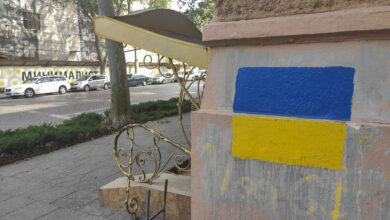Iraq’s crisis deepens as Sadrists shut down parliament

Baghdad, Jul 30 (EFE).- The speaker of Iraq’s parliament adjourned the legislature until further notice Saturday after supporters of influential Shiite cleric Muqtada al-Sadr invaded the chamber for a second time in four days to block the appointment of a prime minister they oppose.
Announcing the adjournment, Mohamed al-Halbousi called on the parliamentary blocs to sit down for negotiations to avert “disastrous” consequences for the oil-rich, war-ravaged nation.
The speaker made the decision after dozens of Sadrists who forced their way into the building said that they planned to occupy the parliament indefinitely.
Candidates endorsed by Al-Sadr won a plurality in the legislature in last October’s elections, but they abandoned parliament in June after the Coordination Framework, an Iran-aligned Shiite coalition, repeatedly obstructed their attempts to form a government.
The withdrawal of the 74 Sadrist lawmakers opened the door for the Framework to put forward Mohamed Shia al-Sudani as prime minister.
But the popular Al-Sadr, a defender of Iraqi sovereignty who opposes the influence of both Iran and the United States, this week mobilized his thousands of supporters to invade parliament and halt the installation of Al-Sudani.
In the first incident, on Wednesday, the Sadrists who breached the fortified Green Zone in central Baghdad and entered the chamber left after a few hours at the behest of Al-Sadr.
On Saturday, however, the protesters encountered significantly stronger resistance from the security forces and confrontations left more than 100 people injured, including a dozen in serious condition, according to the Health Ministry.
The outgoing prime minister, Mustafa al-Kadhimi, called for unity to “stop those who accelerate this sedition.”
“The dilemma is political, its solution is political and it is possible through a sincere dialogue and with concessions,” he said in a nationally televised address.
Several prominent figures in the Coordination Framework, including Al-Sadr’s principal political enemy, former Prime Minister Nuri al-Maliki, appealed to the cleric to enter talks.
Al-Sadr, whose cleric father was slain on the orders of Saddam Hussein, is revered by poor and working-class Shia for his lineage and for the role he played in resistance to the US invasion and occupation of Iraq. EFE
ah/ta/jt/dr





